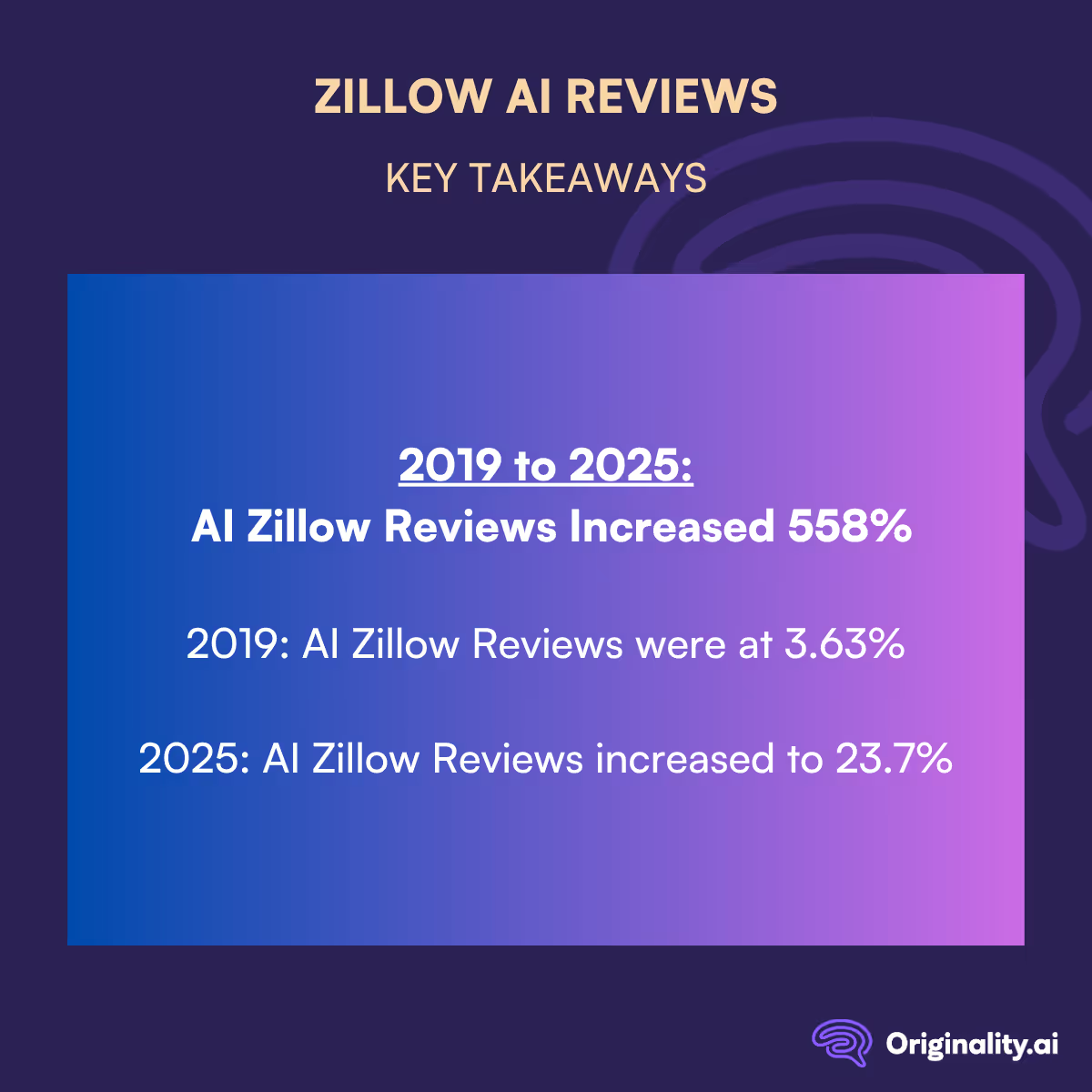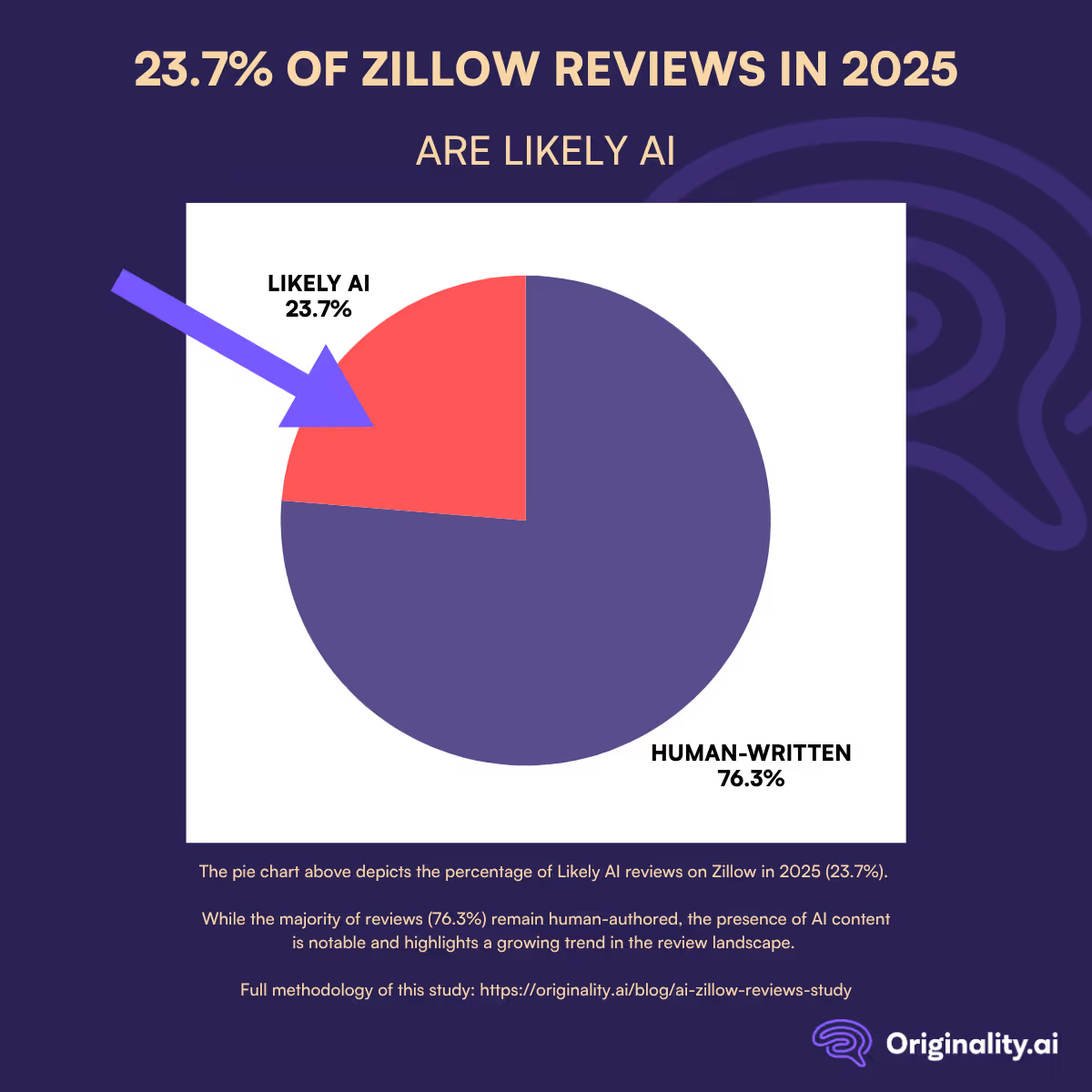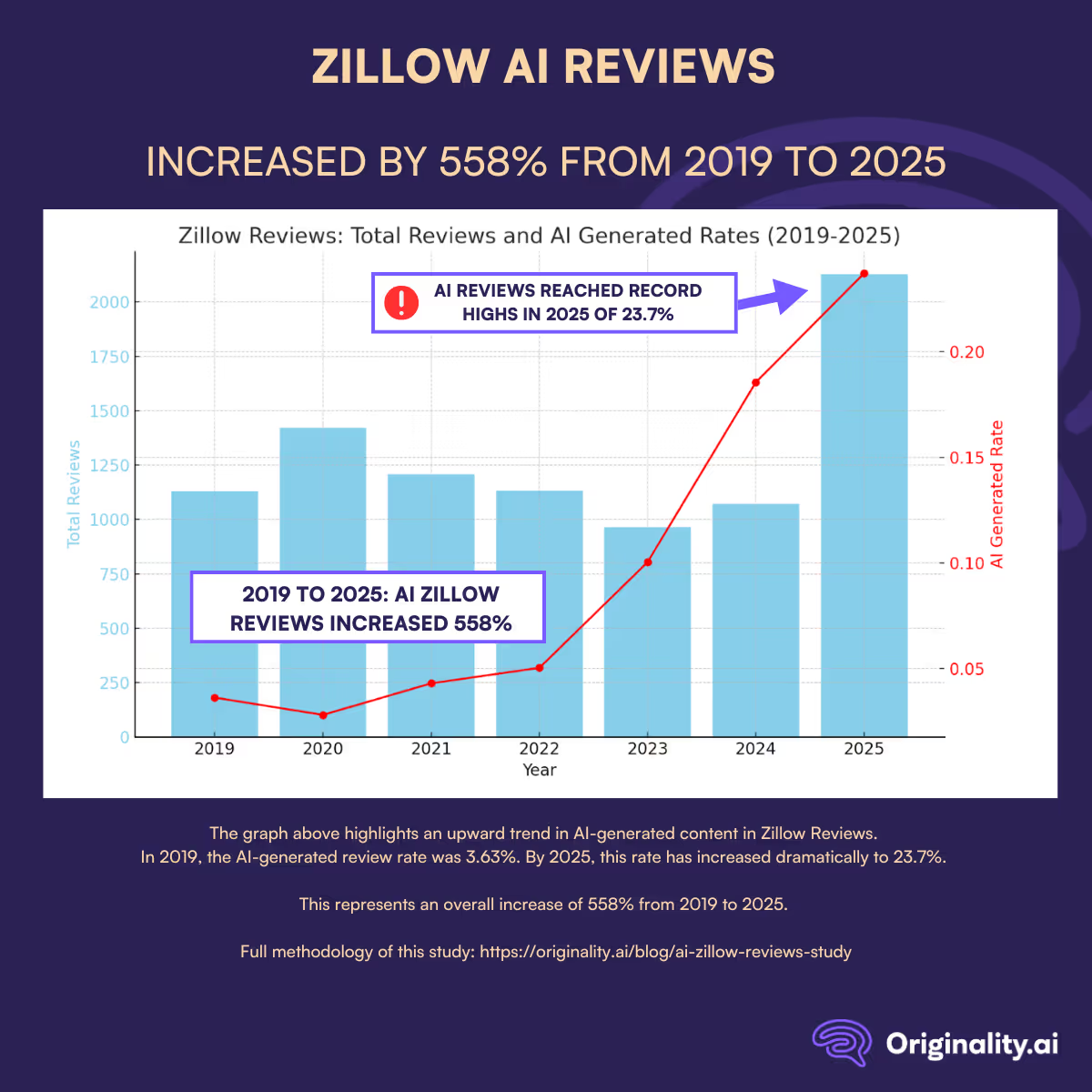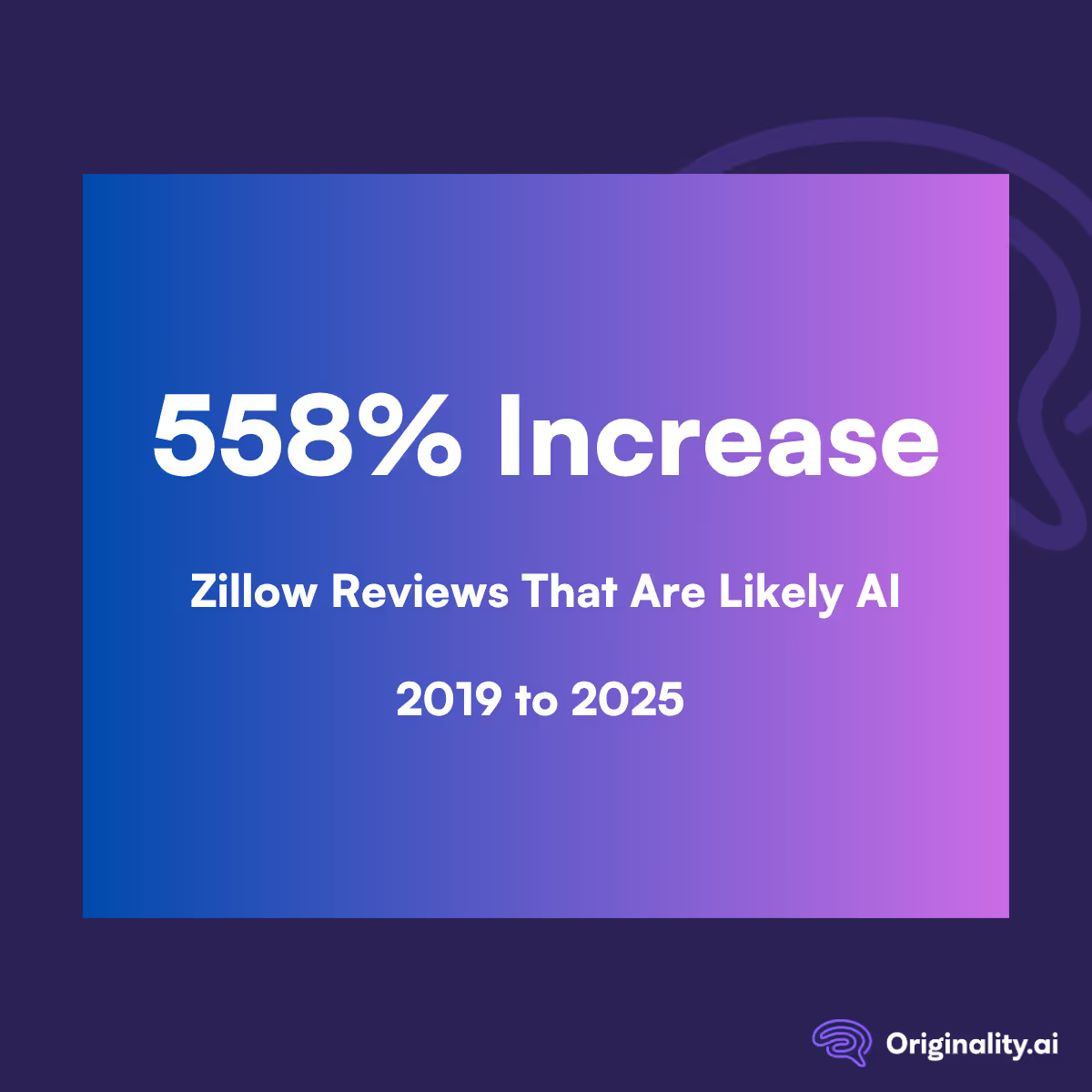Moving house can be one of the most stressful things you ever do.
There are so many factors to consider, such as location, cost, and everything in between. Fortunately, many of those stresses can be eased by knowing you are working with a trusted, highly-rated real estate agent.
Unless maybe you aren’t?
In our recent study, we look deeper into AI Zillow Agent reviews, highlighting how many agent reviews are real, human-written responses and how many have been AI-generated.


Our analysis found that AI-generated Zillow agent reviews accounted for 23.7% of reviews in 2025.
This means that the majority of reviews on Zillow are still human-written. However, the presence of AI-generated reviews is significant and also shows a rapidly increasing trend over time.
The increase from 3.63% in 2019 to 23.7% in 2025 is likely due to advancements in AI tools, as well as an increased pressure on estate agents to show potential customers that other clients have trusted them with their business.
As a result, it may be increasingly challenging for users to identify the difference between an authentic agent review, and one that is AI-generated. Especially considering that multiple studies have found that humans struggle to differentiate AI text from human-written content.

When looking at the data from 2019 to 2025, there is a clear increase in AI-generated reviews.
The data shows an increasing dependency on AI for generating automated reviews, especially in the travel industry, where consumer decision-making is often dependent on reviews and customer testimonials.

The rise in AI-generated content may have broader implications. On one hand, the growing reliance on AI could streamline the review process, enabling more individuals or businesses to generate reviews quickly and efficiently.
On the other hand, the authenticity and trustworthiness of reviews might be called into question, as users may become wary of AI-generated feedback.
In the context of Zillow, these trends highlight a critical challenge: ensuring that reviews remain credible and helpful to users while adapting to the evolving role of AI in online platforms.
Zillow may need to invest in transparency measures, such as labelling AI-generated reviews or implementing AI detection to maintain trust among its user base.
Additionally, the platform could explore mechanisms to verify review authenticity, especially as AI tools become increasingly accessible and consumers become more confident in how to use these tools effectively.
This data provides a foundation for further analysis and strategic decision-making to address these emerging challenges.
The increase in AI-generated Zillow agent reviews poses an interesting question. Are AI tools the answer to improved efficiency and productivity in agent reviews, or could the use of AI lead to increased mistrust in consumer reviews?
For businesses like Zillow, which rely heavily on consumer trust, ensuring agents are operating in a fair and transparent manner is essential for keeping their credibility as a trusted home and rental company.
Are you unsure if a review you’re reading is human-written or AI-generated? Use the Originality.ai AI detector to find out.
Learn more about how AI is impacting other online platforms:
The methodology for collecting 10,000 Zillow Agent Reviews via the Bridge Interactive platform follows a structured process to ensure comprehensive data retrieval while meeting OData requirements.
The script begins by constructing a base URL and query parameters for the endpoint, including an access token for authentication. An optional date filter can narrow the review range.
The script sends HTTP GET requests to retrieve data in "pages" of up to 200 records, using a while loop and OData $skip parameter to paginate through all available reviews. The loop continues until the maximum record count is reached or fewer than 200 records are returned.
Error handling checks response status codes, and if a request fails (e.g., 401 Unauthorized), the process stops to avoid incomplete data. Once all reviews are collected, the results are exported to a CSV file, dynamically adjusting for varying data fields.
This process ensures data integrity and flexibility in handling diverse review fields.

According to the 2024 study, “Students are using large language models and AI detectors can often detect their use,” Originality.ai is highly effective at identifying AI-generated and AI-modified text.